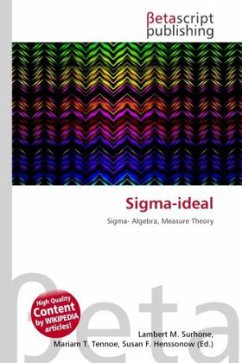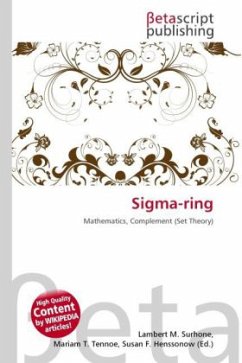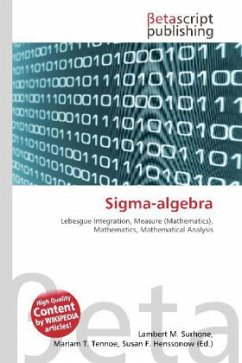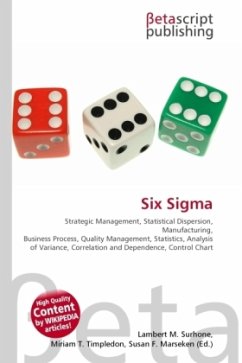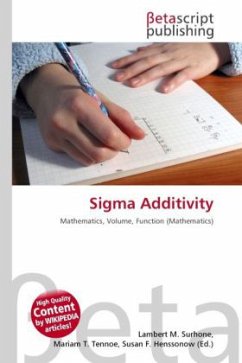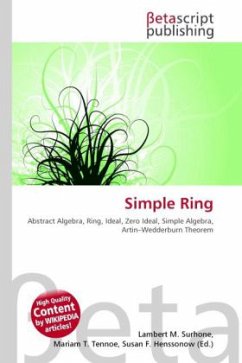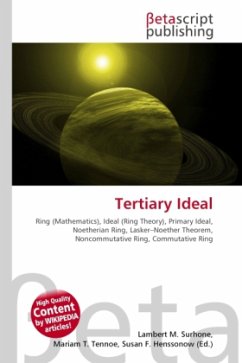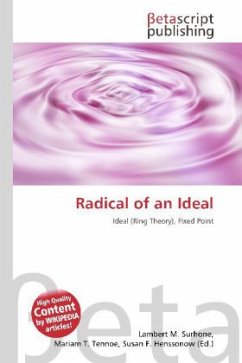High Quality Content by WIKIPEDIA articles! In mathematics, particularly measure theory, a -ideal of a sigma-algebra ( , read "sigma," means countable in this context) is a subset with certain desirable closure properties. It is a special type of ideal. Its most frequent application is perhaps in probability theory. Let (X, ) be a measurable space (meaning is a -algebra of subsets of X). A subset N of is a -ideal if the following properties are satisfied: (i) Ø N; (ii) When A N and B , B A B N; (iii) left{A_n right}_{ninmathbb{N}} subseteq N Rightarrow bigcup_{ninmathbb{N}} A_nin N. Briefly, a sigma-ideal must contain the empty set and contain subsets and countable unions of its elements. The concept of -ideal is dual to that of a countably complete ( -) filter. If a measure is given on (X, ), the set of -negligible sets (S such that (S) = 0) is a -ideal.
Bitte wählen Sie Ihr Anliegen aus.
Rechnungen
Retourenschein anfordern
Bestellstatus
Storno

